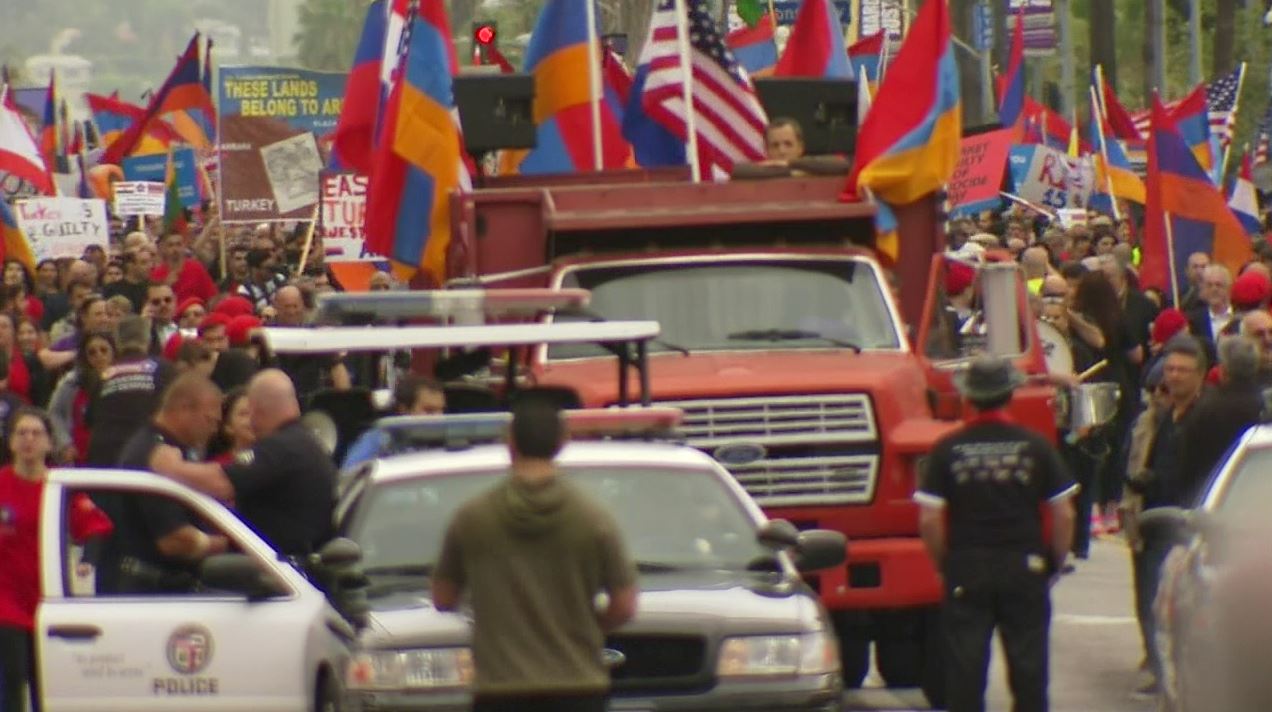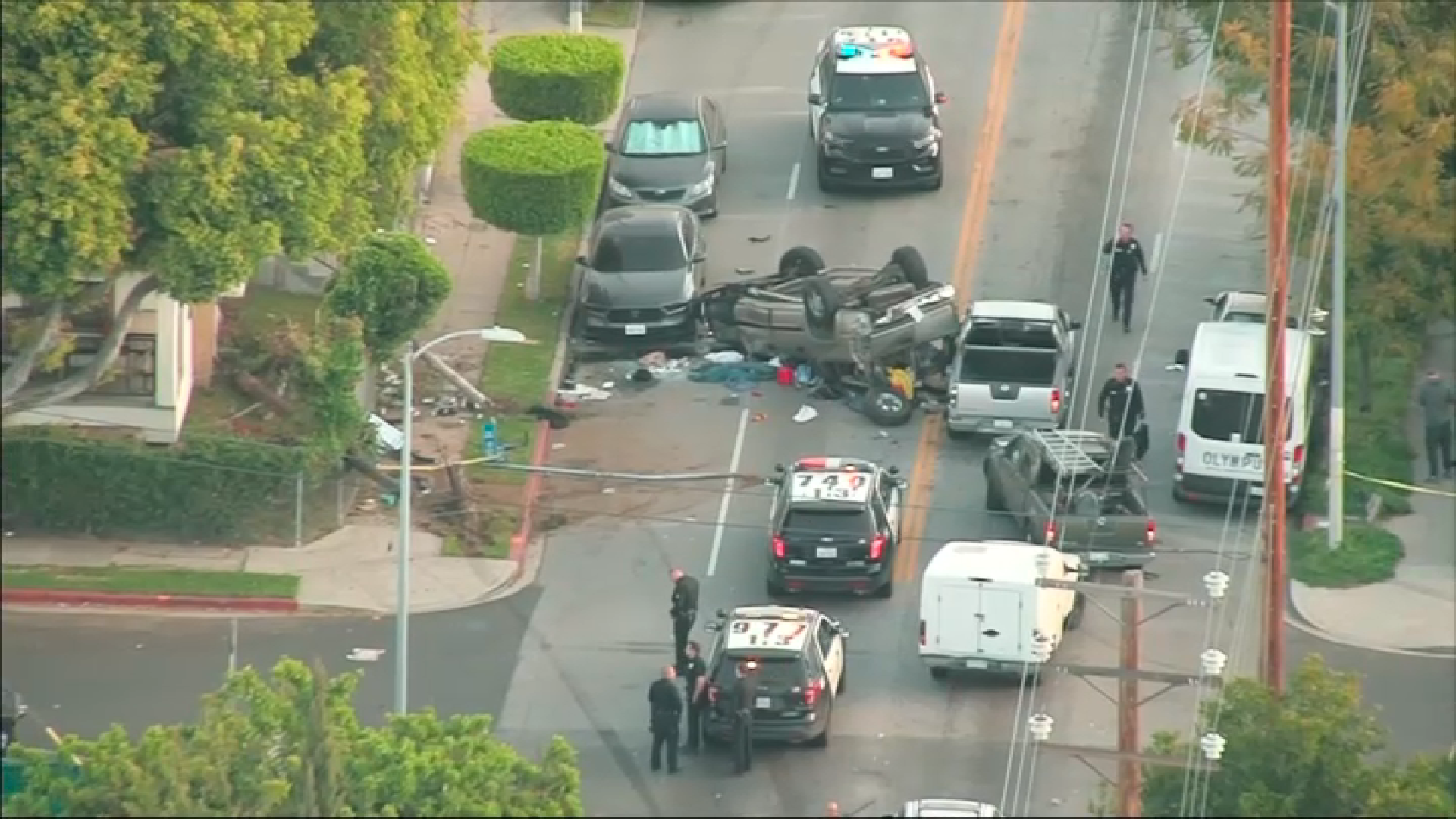"Suspiciously bulky." That's how border patrol agents described some teenagers they caught trying to walk across the San Ysidro pedestrian border crossing in the last few days.
Check it out -- these are some pictures taken by Customs and Border Patrol in San Diego. Either this kid has thunder thighs, or he's got almost five pound of marijuana taped to his legs.

This kid is 17, and was one of five arrested last week within 24 hours of eachother trying to walk into the U.S. with drugs taped to their bodies.
The story in the San Diego Crime Examiner says "...it's part of a recent trend of using teens to smuggle drugs into the U.S. on foot.
"It’s deeply disturbing that teenagers - children from our communities - are being lured by narcotics smuggling organizations with the promise of easy money and little risk,” said Paul Morris, director of field operations for CBP in San Diego.
The story details a list from Customs and Border Patrol of the following attempts:
- Eight a.m., July 17, officers at the San Ysidro pedestrian border crossing noticed a 15-year-old San Diego resident wearing an extra large sweatshirt and appearing "suspiciously bulky." They found two packages taped to her stomach and back holding more than four and a half pounds of marijuana.
- At about the same time, another 15-year-old San Diego girl was noticed wearing a bulky sweatshirt. Officers found two packages taped to her stomach and back, containing almost five pounds of marijuana.
- Nine a.m. July 16, the San Ysidro pedestrian border crossing was again the location when officers saw a 16-year-old Chula Vista boy, after noticing him wearing a sweater on what was a day of high temperatures. They found four packages with nearly three pounds of marijuana taped to the back of his thighs and around his legs.
- Around 6:30 p.m. the same day, a 17-year-old U.S. citizen was pulled from line after officers noticed his "awkward-looking stride." Officers four packages containing more than 4 1/2 pounds of marijuana taped around his thighs and calves.
- One thirty p.m. on the same day, officers at the Calexico downtown port of entry noticed a 16-year-old boy from the U.S. "acting nervous and walking awkwardly." They found a package taped to his right thigh, containing more than a pound of brown heroin.

It makes you wonder how they're recruiting 15-year old girls to do this. The story in the San Diego Tribune has a few more details on the dead giveaways: one boy caught the attention of officers because he was wearing a sweater and it was about 100 degrees outside. Looking nervous and walking oddly were other tipoffs.
Local
Get Los Angeles's latest local news on crime, entertainment, weather, schools, COVID, cost of living and more. Here's your go-to source for today's LA news.
Both the San Diego Tribune and the UPI stories characterize this as a new trend in drug couriers.
It also makes you wonder how many of these kids have NOT been caught, and keep going back to make some easy cash.
There's not much more about this story online today, but I found another one that offers a little insight into the motivation for these kids.
A CNN story from April called "Teen made $50,000 smuggling drugs across border" has a pretty self-explanatory headline. It's about this guy Danny who's 21 now, working two part time jobs and who says "it takes him two months to earn the money he used to make in one day of drug smuggling," to quote the story.
He used to drive drugs across the border in his car -- and says he did it about 20 times and was only arrested once (The charges, he says, were dropped and he only spent a few days in jail). Here's an excerpt from that story:
Young smugglers don't fit a stereotype. Several sources said that both American and Mexican teens are lured into the work. Teenage boys and girls alike are involved. Many smugglers come from middle-class families.
"There's a lot of money in the trade, a lot of inducement for a lot of young people to get involved," El Paso County Attorney Jose Rodriguez said. His office is responsible for prosecuting juvenile smugglers.
Federal and state authorities say drug cartels recruit young smugglers from schools. Depending on the size of the drug load that's being smuggled, a kid can be paid a couple hundred dollars up to $5,000.
Mexican officials say cartels have placed classified advertisements in Mexican newspapers with cryptic messages offering young people a job with good salary and benefits. A phone number is included in the ad.
The officials say a cartel member sets up a meeting to determine whether the kid is up to the job.
But Rodriguez offers a chilling reason why teenagers should avoid the lure of easy money.
"We had a kid here who lost a load and had some of his toes chopped off," Rodriguez said.

Of course all of this just inflames the debate about legalizing drugs like marijuana; here are some of the comments:
"legalizing any drug will not solve anything. Drug users will always find a way to get drugs cheaper than what the government would charge. legalizing will not stop the illegal drug trade. the drugs will still be brought here and sold for less than the price of legal drugs. i'm not saying i know the solution but legalizing an drug, even marijuana is not a drug will not solve it."
"The only logical choice is to legalize all drugs. It is absolute tyranny for a government to tell a citizen that they do not own their own body. To make things worse, it is absolutely asinine to combat the attempts of people to use their right to their own body. If you disagree, look back at the ages of prohibition in the United States. Alcohol was illegal and it brought about the rise of crime organizations to combat the government's attempts to remove people from what was once a legitimate commercial businesses product that allowed people to consume it and have the right to their own body. When prohibition was ended those criminal organizations legitimized or disappeared. Violence was no longer seen. Now we're back in the same situation..."
"I think it's funny at the number of people that think legalizing marijuana would fix this issue... Don't get me wrong, I'm all for legalization, but there will always be illegal drugs that need smuggling, and there will always be naive teenagers to exploit."
"I have to say, I completely disagree with those who say legalizing would make this worse. How is taking the profit out of a dangerous, black-market business going to make anything worse? Delivery drivers certainly wouldn't get paid $5,000 nor would they lose their toes."
"Let's see the tax money on what he reportly made."
Hmmm, that last one reminds me of an issue I took up in this space last week, on taxing medical marijuana clinics, a discussion which quickly disintegrated into a debate on whether to flat out legalize marijuana in California and solve the budget problem with the taxes on it. This morning we read the followup story to that on the air: Oakland passed its tax on medical marijuana clinics, with an overwhelming 80 percent voter approval. That city will get about $300,000 a year in taxes at a time when it needs it the most. Our story on NBCLA.com says:
Although California's 800 or so pot clubs also are expected to pay state sales tax, Oakland is the first city in the country to create a special tax on marijuana sales.
Advocates of legalizing pot for recreational use hope to use Oakland's experience with Measure F to persuade California voters next year to approve a measure that would legalize and regulate marijuana like alcohol.
We'll see if this measure is the .. gateway? to legitimize marijuana use by allowing it to make us feel rich. Guess what, Los Angeles has 100 times as many medical marijuana dispensaries than Oakland does -- so do the math, and we could finally get that 10,000 strong LAPD Chief Bratton has been talking about for so many years. And as for California, the Board of Equalization estimates our state could collect $1.4 billion in taxes every year from legalized marijuana for everyone.
Put that in your pipe and ... well, I can't recommend that you smoke it. It IS still illegal ...



